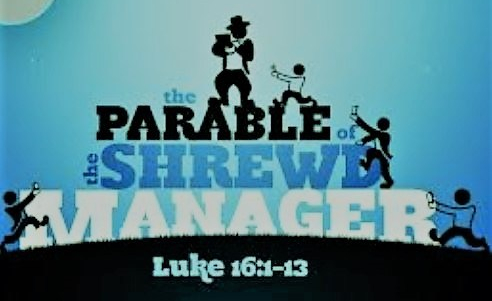WORD Alive by Fr Bel San Luis SVD 25th Sunday Ordinary Time
Did you know that graft and corruption already existed during the time of Christ? The parable of the shrewd manager which is the subject of this 25th Sunday gospel (Lk 16,1-13) illustrates this.
Employed by a rich man, the manager is accused of squandering his master’s resources. The dishonest manager realizes he is about to be fired. What should he do?
* * *
He figures out a clever but thoroughly fraudulent scheme. While still on his position, he uses it to his advantage. He calls his master’s debtors and reduces their bills by as much as 50 percent. He reasons that after he loses his job, the people who profited from his scheme will take good care of him.
* * *
But at the conclusion of the parable, Christ points out the manager’s serious flaw. He is accused of “buying friendship through cheating” (Lk 16, 9). He achieves his goal by a grossly dishonest way.
The Lord’s message is very relevant today, what with the hot issues of “buying” release from jail by wealthy prisoners’ known as “GCTA FOR SALE.” (Good Conduct Time Allowance), the PhilHealth scams, drug, and human trafficking, to mention some.
* * *
WHEN MONEY BECOMES BAD. In today’s gospel, Jesus says further, “No servant can serve two masters–God and mammon” (Lk 16,13). The Lord is not making a clear distinction between God and money. He’s not telling us to make a choice between God and money.
* * *
It is because, in practical life, money is important. A funny guy once said: “People say, ‘Money is the root of all evils,’ but they can plant it in my garden anytime.”
We need money to live, to support our families, and do apostolate for the poor and underprivileged. In short, money is not necessarily evil.
* * *
But money can become bad when it replaces God as the center of our life or when we’re so preoccupied with making money that we forget God and the spiritual values. In the US one-dollar coin, there’s an inscription “In God We Trust,” but cynics’ joke that for some it’s more: “In GOLD We Trust.”
* * *
I came across the story of an American Catholic who combines his work and money concerns with gospel values. His name is Charlie De Leo.
He served in the Vietnam War and after returning home, he got a job as maintenance man of the Statue of Liberty.
Part of his job is to take care of the torch in the statue’s hand and the crown on the statue’s head. He has to make sure that the sodium vapor lights are always working.
* * *
But apart from his work, Charlie does other things for the Lord. He received a recommendation from the Red Cross after donating his 65th pint of blood.
And since hearing of the work of the late Mother Theresa in India, he had given over $12,000 to her and to people like her.
* * *
In an interview, he told reporters, “I don’t socialize much. I don’t have enough money to get married. After I got my job, I sponsored six orphans through those children’s organizations.”
Charlie De Leo is a living example of what Jesus is saying in the gospel. He works for a living, for money, but he shares it with those who have less in life.
* * *
Our Lord expects us to be resourceful money-makers, but He also expects us to be honest and SHARE our resources with the less fortunate.
By doing this, we express belief in the eternal security which God alone can offer.
* * *
THE LIGHTER SIDE. A man, who doesn’t believe in God, heaven or hell, dies.
He’s all dressed up in his coffin but nowhere to go.
* * *
SHARE YOUR BLESSINGS. A benefactor, Mr. Salvador Monroy, once wrote me, “I give because my money did not come from me alone but from God. My life in this world is limited. I have to prepare for the inevitable. I’m doing this by sharing the blessings I received from God.”
* * *
How about emulating Mr. Monroy? Chip in an amount or sponsor a seminarian’s schooling for one year. For inquiries, e-mail me at belsvd@gmail.com.

